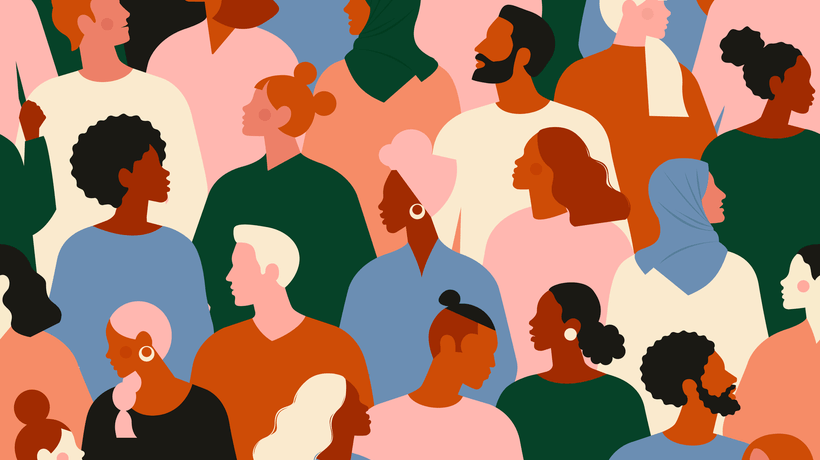In 2020, the murder of George Floyd by Minneapolis police ignited a surge of unrest, prompting swift public commitments to diversity, equity, and inclusion (DEI). Major corporations responded by creating new DEI roles or expanding existing teams, and the term quickly became a prominent buzzword in workplaces. While these initiatives were initially met with widespread support, nearly four years later, DEI efforts have become a topic of active debate.
While DEI programs have become a cornerstone of many organizations’ core strategies, today, even mentioning these three letters can provoke controversy. So what sparked the backlash and scrutiny over DEI and what does the future hold?
DEI Backlash: The Pendulum Swing
The enthusiasm for DEI that surged in 2020 began to diminish around mid-2022 and has since sparked backlash. Why? Some attribute the backlash to resistance from entrenched power structures, while others are examining the lack of visible progress following a few years of significant time and dollars invested.
At Inclusivity, we see four themes fueling this backlash:
- Social Divide: The events of 2020, particularly the killing of George Floyd, highlighted racial justice issues and led to widespread protests, notably through the Black Lives Matter movement. At the same time, the COVID-19 pandemic intensified anti-Asian sentiment, further heightening societal tensions. These events prompted crucial conversations about justice and equity but also polarized public opinion. While many viewed these moments as a call to address systemic inequities, others saw the ensuing DEI initiatives as excessive. For some, DEI became seen as a political agenda rather than a movement focused on human rights and fairness.
-
- A Performative Response: The strong push for DEI that began in 2020 and 2021 was driven by public demand for organizations to prioritize DEI efforts. Employees, consumers, and activists called for immediate action, resulting in a surge of public commitments from organizations. However, this response was often more reactive than proactive. Many companies felt pressured to act but lacked the foundational groundwork of data, resourcing and training required for meaningful change. This led to performative actions—such as public statements without follow-up, diversity hires lacking support systems, and superficial training programs
-
- Limited Progress: Although awareness of DEI issues has increased since 2020, actual progress has been limited, further fueling the backlash. Some organizations lost interest after the initial surge, while others were never fully committed to the necessary cultural changes. Challenges such as lack of employee engagement, insufficient budgets, and inadequate resources have hampered efforts. Without genuine, intentional leadership commitment, DEI initiatives often become superficial, reduced to ‘checking boxes’ rather than fostering real inclusion
-
- Expert Mislabelling: The rapid demand for DEI expertise has led to a proliferation of so-called “experts” who often lack the necessary lived experience or educational background. This mislabelling has resulted in inconsistent, and sometimes harmful, DEI initiatives. Organizations have relied on poorly informed leaders, leading to a lack of clarity and direction in DEI efforts
-
- Public misinformation: The spread of misinformation about DEI has also contributed to confusion and fear, furthering the backlash. Many now associate DEI with political agendas, forced compliance, or misguided initiatives, undermining the trust essential for advancing DEI work.
The Future of DEI – A Business Imperative
Despite the increasing scrutiny and pressure on DEI language and practices, research indicates that companies plan to continue their DEI efforts. A survey of US business executives released in January 2024 revealed:
- 82% view diversity initiatives as critical to their business strategies
- 67% believe these efforts will become more important in the coming years
- Nearly 50% cited improving business performance (43%), acquiring better talent (43%), and increasing creativity (38%) as primary reasons for implementing DEI initiatives
- Only 2% considered DEI-related initiatives unimportant
Although the rhetoric is loud, the reality is that most business leaders know that a diverse, equitable and inclusive workplaces is a business imperative in today’s world.
What Now?
What does this mean for organizations and leaders committed to DEI? Although some may choose to downplay DEI discussions or reduce financial commitments amidst this time of public backlash, experts—including our team at Inclusivity—believe that DEI efforts will continue.
Here are a few takeaways for consideration:
- Conversations about race, gender, ethnicity, and religion will persist in organizations and communities
- Legislation supporting DEI work continues (e.g., the recently updated Accessibility Act in Canada)
- Indigenous Truth and Reconciliation will guide us toward a more equitable and inclusive society in Canada
- A business case for DEI linked to organizational strategy is essential and empirically proven; a reactive and performative approach will not endure.
Overall, business leaders working in DEI must understand their organization’s “why,” at a foundational level. Do your values promote treating people with respect and fairness? How are you embodying those values? The DEI imperative resides there.
This article is based on the webinar “A Pendulum Swing: The Controversy of DEI in Today’s World” hosted by Inclusivity in September 2024. For more information, please contact [email protected]





















